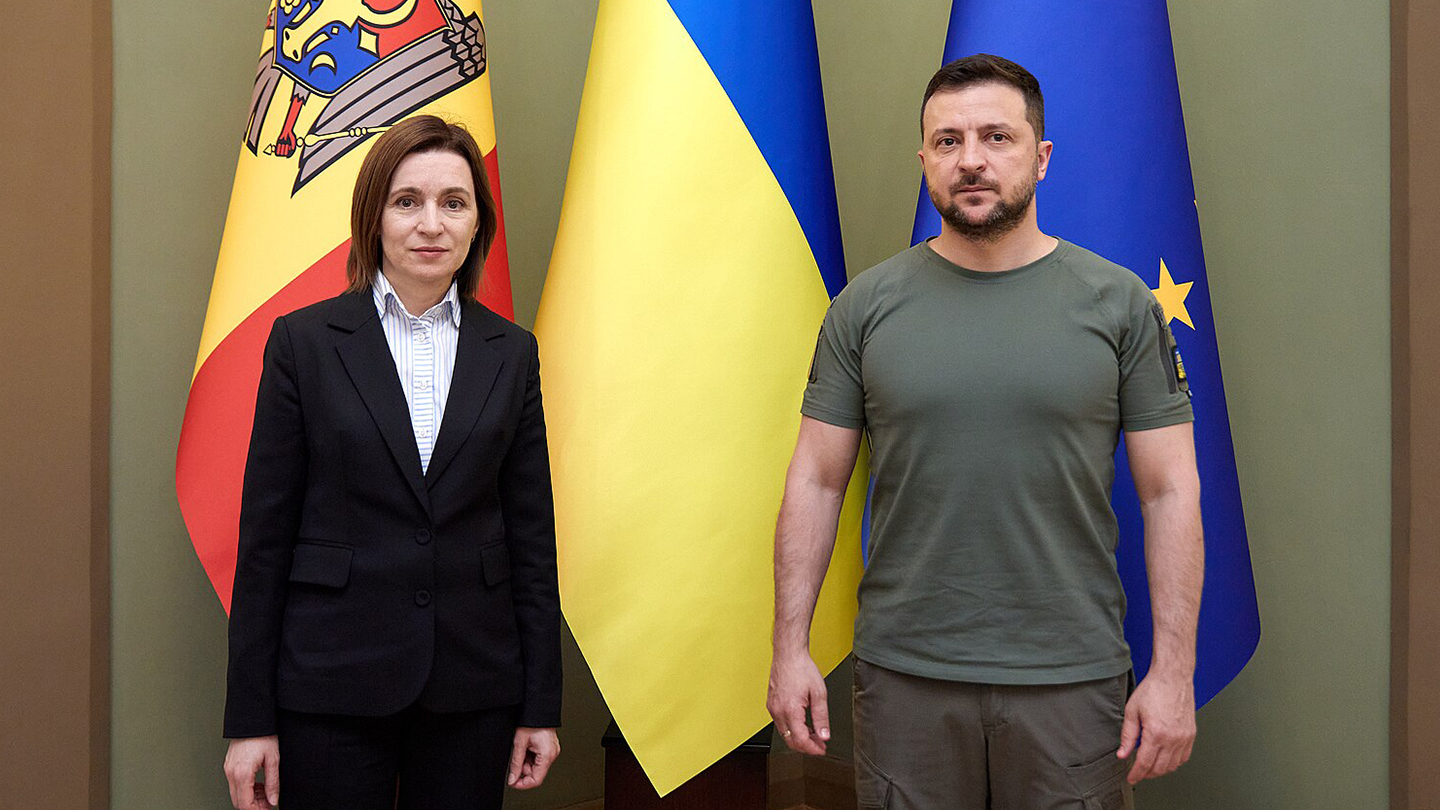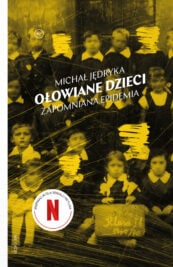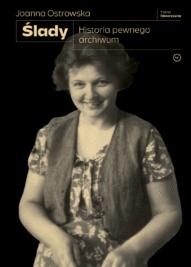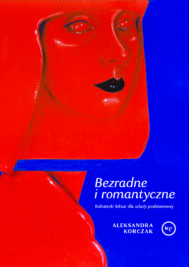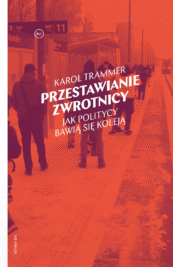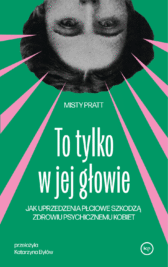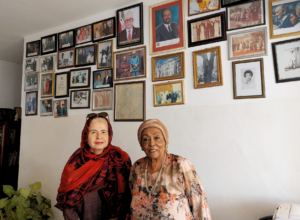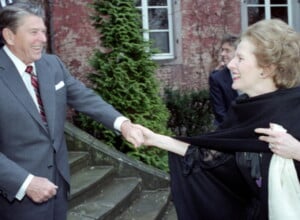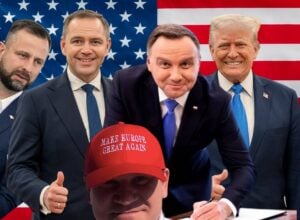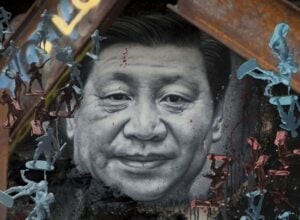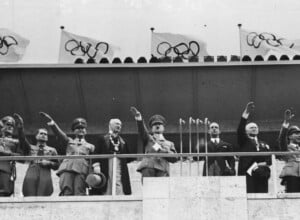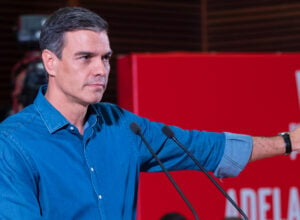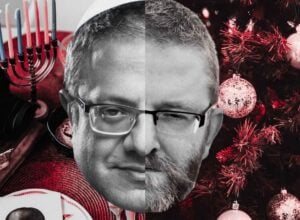Paulina Siegień: Co się wydarzyło w Mołdawii 20 października? Ostateczny wynik wyborów i referendum jest pozytywny, ale czy nie masz poczucia, że coś poszło mocno nie tak, zwłaszcza biorąc pod uwagę przedwyborcze prognozy?
Eugen Muravschi: Wynik referendum jest pozytywny, ale różnica w liczbie głosów była niewielka. Sądzę, że przed wyborami nie docenialiśmy skali rosyjskiej operacji, choć byliśmy świadomi, że Rosja od miesięcy budowała w Mołdawii swoją sieć i płaciła ludziom za to, że się w nią angażowali. Rosyjskim agentom nie udało się przekupić wielu ludzi w dniu głosowania. Za to ci, którzy przez kilka miesięcy otrzymywali wynagrodzenie od Rosji poprzez oligarchę Ilana Shora, byli wystarczająco liczni, by zachwiać wynikiem wyborów i referendum. Tych osób nie było widać w badaniach opinii publicznej. Kiedy przeprowadzasz sondaż, to nikt ci nie powie: „tak, mam proeuropejskie poglądy i chcę, żeby Mołdawia weszła do UE, ale dostałem pieniądze od Shora, więc zagłosuję przeciwko”. Czegoś takiego nie było ani w badaniach ankietowych, ani w pogłębionych wywiadach. Dlatego tak trudno było oszacować to zjawisko.
Wojciech Siegień: Czy ludzie, którzy mają proeuropejskie poglądy, naprawdę byliby skłonni za pieniądze zagłosować w referendum przeciwko zmianom w konstytucji?
Ci, którzy są głęboko przekonani do idei integracji europejskiej, raczej nie. Ale już wyborcy niezdecydowani mogli tak postąpić. W wynikach referendum widzimy, że regiony Mołdawii, które dotychczas były proeuropejskie, zagłosowały przeciwko zmianom w konstytucji. To było nieoczekiwane.
W.S.: Jak można to wytłumaczyć?
Kampania, którą prowadził rząd i otoczenie Mai Sandu, była niewystarczająca. Byli zbyt pewni siebie. Wszystkie sondaże pokazywały dość pewną przewagę opcji proeuropejskiej, więc sądzili, że to będzie bułka z masłem. Trzeba było zrobić więcej, lepiej wytłumaczyć cel i sens głosowania w referendum. Według naszych badań w WatchDogu około jednej trzeciej respondentów nie rozumiało pytania na karcie głosowania. To nie było proste pytanie w stylu: „Czy chcesz do Unii Europejskiej?”. To było pytanie o poparcie dla zmian w konstytucji, ze wskazaniem konkretnych artykułów, więc ludzie nie do końca wiedzieli, w jakiej sprawie głosują i co się wydarzy, jak wygra jedna czy druga opcja.
Poza tym wyborcy, którzy głosują na siły prozachodnie i proeuropejskie, są bardziej wymagający i krytyczni. Jeśli czuli się rozczarowani postępowaniem rządu i prezydentki – a mieli ku temu powody – to po prostu nie poszli głosować. Wyborcy prorosyjscy są pod tym względem bardziej karni i lepiej zorganizowani. Siłom prorosyjskim udało się też skutecznie przekonać ludzi, że to nie jest wcale referendum, które dotyczy europejskiej przyszłości, a referendum popularności rządu i samej Sandu. Nie podoba ci się obecny rząd? Proste, głosuj w referendum na nie, żeby to okazać. Podsumowując, część osób głosowała w tym referendum na nie, bo została opłacona, a tak naprawdę nie miała zdania na ten temat i nie rozumiała, na czym polega integracja europejska, a część dlatego, że jest rozczarowana obecnym rządem.
Słuchaj podcastu „Blok wschodni”:
Rząd i Maia Sandu nie byli w stanie zbudować napięcia wokół tych wyborów jako wyborów decydujących o przyszłości, o drodze rozwoju na następne sto lat. Zamiast tego od początku mówiło się o „referendum Sandu”. Błędem był już sam sposób ogłoszenia go, łączący referendum z prezydentką. Pod jej adresem padały też oskarżenia, że nie jest w stanie zbudować szerokiej proeuropejskiej koalicji. Referendum powinno być przedstawiane jako wspólny projekt wszystkich proeuropejskich sił w kraju, a nie tylko jednej partii. Tak się nie stało.
P.S.: Poza aktorami politycznymi są też aktorzy społeczni, np. organizacje pozarządowe, które również prowadzą swoje kampanie w związku z wyborami, zazwyczaj profrekwencyjne.
WatchDog był częścią inicjatywy Obywatele dla Europy, w ramach której odwiedzaliśmy mniejsze miejscowości w całym kraju, żeby rozmawiać z ludźmi, wyjaśniać im sens referendum. Ale nie mamy takich kadr ani zasobów, jakie ma rząd lub partia rządząca. Mamy tylko kilku wolontariuszy. Ja sam byłem w 12 miejscowościach. Równolegle podobne kampanie prowadziły też inne organizacje pozarządowe. Ale nawet przy tym wysiłku, jeśli rząd i partie polityczne zaniedbują kampanię, to my jako NGO nie jesteśmy w stanie tego zrekompensować. Nie jesteśmy od tego, by wykonywać za nich ich pracę.
P.S.: Jakie pytania i wątpliwości mieli ludzie, z którymi spotykałeś się w ramach kampanii Obywatele dla Europy?
Tak jak mówiłem, wiele osób nie rozumiało pytania referendalnego. Mówili: „Tak, chcemy do Europy, ale czy jeśli zagłosujemy na tak w referendum, to Sandu będzie mogła zrobić, co chce, z konstytucją?”. Musieliśmy wyjaśniać, że nie, że chodzi tylko dwie konkretne modyfikacje. Pamiętam też starszą panią, która powiedziała: „Shor dał mi 600 lei, żebym na niego zagłosowała. Jeśli PAS da mi 1000, zagłosuję na nich”. Mówiła o tym bardzo otwarcie. Proeuropejscy lokalni politycy często narzekali, że organizacja Shora kupuje głosy najbiedniejszych i najbardziej bezbronnych ludzi. Dla wielu z nich, zwłaszcza dla emerytów, to był sposób na zapewnienie sobie chleba, kupienie podstawowych towarów. Pieniądze od Shora czasem nawet podwajały ich podstawowy dochód.
W.S.: Czyli wszyscy wszystko wiedzieli i widzieli, ale nie mieli pomysłu, jak z tym procederem efektywnie walczyć?
Policja prowadziła w tej sprawie działania i śledztwa, starała się konfiskować pieniądze od osób, które wwoziły je do kraju. Ale poza tym, co można było zrobić? Przecież nie mogli aresztować 100 tysięcy osób. Mam nadzieję, że uda się zatrzymać i osądzić te, które były na szczycie tej piramidy. Kolejna sprawa jest taka, że policja prowadzi śledztwo, zbiera dowody, a potem reszta zależy od prokuratora. To prokuratura decyduje, czy sprawa trafi do sądu i z jakimi zarzutami. Mam nadzieję, że cały ten system zadziała bardziej efektywnie przed drugą turą wyborów prezydenckich. I będzie działać dalej, bo w przyszłym roku mamy wybory parlamentarne i nie możemy sobie pozwolić na to, by Rosja z Shorem nadal tkała w Mołdawii prokremlowską sieć i kupowała głosy.
P.S.: W pierwszej turze wyborów Maia Sandu była jedyną kandydatką proeuropejską. Jeśli Aleksandr Stoianoglo, jej konkurent w drugiej turze, przejmie głosy nawet części pozostałych kandydatów, to…
Ma szanse na większość i zostanie nowym prezydentem.
P.S.: Jeszcze przed wyborami to był niewiarygodny scenariusz.
Zazwyczaj proeuropejski kandydat zyskuje dodatkowe głosy w drugiej turze. Ludzie, którzy są rozczarowani rządem, okazali to, nie idąc głosować w pierwszej turze, ale mogą zmobilizować się przy drugiej. Niezależnie od uczuć, jakie żywią wobec Sandu i rządu jej Partii Działania i Solidarności, nie chcą mieć prorosyjskiego prezydenta. Więc jest jeszcze trochę miejsca na wzrost poparcia dla niej. Natomiast wśród prorosyjskich kandydatów nie wszyscy są w przyjaznych stosunkach. Nie jestem przekonany, że uda im się stworzyć zjednoczony front. Dlatego sądzę, że Maia Sandu wciąż ma szanse na wygraną.
P.S.: Co zwycięstwo Stoianoglo oznaczałoby dla europejskich aspiracji Mołdawii?
Przynajmniej przez rok będziemy wciąż mieć prozachodni parlament i rząd. Mołdawia nie jest republiką prezydencką, więc prerogatywy Stoianoglo byłyby ograniczone. Dopiero większość w parlamencie dla partii, z której wywodzi się prezydent, daje mu więcej możliwości. Jego wygrana niesie ze sobą ryzyko właśnie dlatego, że po niej bardziej prawdopodobna będzie wygrana sił prorosyjskich w wyborach parlamentarnych w przyszłym roku.
P.S.: Czy jest jeszcze czas, by stworzyć nową, proeuropejską siłę polityczną? Partię, ruch?
Próbowano zbudować europejską koalicję na wybory prezydenckie, ale partie, które miały w niej uczestniczyć, nie dogadały się. Poza PAS-em mają bardzo niskie poparcie, czasem to zaledwie 1 proc., więc nie dają nadziei na to, że w nowym parlamencie Sandu miałaby z kim zawrzeć koalicję. Może pojawi się ktoś nowy, ale czasu jest mało, a spośród tych partii proeuropejskich, które działają obecnie, żadna nie ma w mojej ocenie szansy na przekroczenie 5 proc. progu wyborczego.
W.S.: Czy po pierwszej turze wyborów prezydenckich i po ogłoszeniu wyników referendum obawiasz się o przyszłość Mołdawii, jej europejskie aspiracje?
To niepokojące, ale ostateczny wynik pokazał, że referendum zostało zatwierdzone. Niewielką większością głosów, ale jednak wygrała opcja proeuropejska. A to oznacza, że konstytucja zostanie zmieniona. Zostanie do niej wpisany cel, jakim jest przystąpienie do UE. To bardzo ważne. Mimo komplikacji, które obserwowaliśmy 20 października, uważam, że Maia Sandu jest faworytką drugiej tury wyborów. Jeśli wygra, będzie to również dobry sygnał przed wyborami parlamentarnymi. Jej wyborcy będą bardziej zmobilizowani, bardziej optymistyczni. Ale jeśli wybory prezydenckie wygra teraz Stoianoglo, to z pewnością będzie to stanowiło ryzyko dla europejskiej, prozachodniej trajektorii Mołdawii.
P.S.: By skutecznie zdobywać poparcie dla idei integracji europejskiej, trzeba nie tylko zaangażowania polityków w Mołdawii, ale i wsparcia samej Unii Europejskiej, jej instytucji, krajów członkowskich. Czy ono jest wystarczające?
Do Mołdawii przyjeżdżają politycy z UE i państw, które do Unii należą, mamy też współprace na wielu poziomach, wizyty studyjne itd. Pewien problem dostrzegam w tym, że trudno jest ustalić łączną sumę unijnego wkładu w Mołdawii. To są różnorakie fundusze i inwestycje, część z nich idzie przez Europejski Bank Inwestycyjny, część przez Europejski Bank Rekonstrukcji i Rozwoju, część w formie projektów miękkich dla organizacji pozarządowych, część jako twarde inwestycje w poszczególnych regionach kraju. Więc kiedy ktoś mnie o to pyta, to mogę powiedzieć, że Unia daje nam dużo, ale nie wiem, ile konkretnie. Unijne instytucje mogłyby być pod tym względem bardziej transparentne, bo politycy i osoby o prorosyjskich poglądach budują taki argument: Unia cały czas daje jakieś pieniądze, ale nie możemy nawet sprawdzić, czy wszystkie trafiają tam, gdzie powinny, i czy rząd ich nie kradnie, bo nie wiemy, o jakich dokładnie sumach mowa.
W.S.: Mołdawia ma dużego sąsiada, który jest członkiem UE, z którym łączą ją bardzo ścisłe więzy kulturowe, językowe i historyczne. Czy Rumunia ma swoją, nie tyle odrębną od unijnej, ile szczególną politykę wobec Mołdawii?
Stosunki bilateralne są bardzo intensywne, Rumunia wspiera Mołdawię w różnych formach. To współpraca ekonomiczna, ale też rola naszego adwokata w Brukseli, którą Bukareszt bierze na siebie. Niestety rumuńscy politycy zazwyczaj obstawiali w Mołdawii złe konie. Ilekroć próbowali wspierać tę czy inną prozachodnią i proeuropejską partię, to zawsze wybierali niewłaściwą. Kiedyś wspierali byłego mera Kiszyniowa Dorina Chirtoacă z Partii Liberalnej. Chirtoacă studiował w Rumunii, przyjaźnił się z rumuńskimi politykami, był uważany za wielką młodą nadzieję mołdawskiej polityki. Ale potem jego partia została wciągnięta w schematy korupcyjne, a następnie sprzymierzyła się z Plahotniukiem (skorumpowanym oligarchą, oskarżanym m.in. o handel ludźmi, który w drugiej dekadzie XXI wieku podporządkował sobie większość obszarów państwa i gospodarki mołdawskiej – przyp. red.), po czym się rozpadła.
Zostali rozczarowani ludzie i w Mołdawii, i w Rumunii. Trzeba zresztą przyznać, że rumuńskie władze były nad wyraz tolerancyjne dla Plahotniuca i wielu Mołdawian miało o to żal. Teraz patrzą przychylnie na mera Kiszyniowa Iona Cebana, który całe życie był prorosyjski, a teraz udaje, że jest proeuropejski. Rumuńscy socjaldemokraci zdają się pokładać w nim duże nadzieje. Choć jego proeuropejskość objawiała się ostatnio głównie tym, że przynajmniej nie agitował przeciwko referendum. Zawsze coś. Przekonamy się przy okazji wyborów parlamentarnych, do jakiej bramki gra Ceban, ale to bardzo oportunistyczny polityk, więc można się spodziewać kolejnej wolty.
P.S.: Z tego, co mówisz, wynika, że politycy w Mołdawii to rzadko ideowcy, a częściej właśnie oportuniści.
Wielu prorosyjskich polityków w Mołdawii to oportuniści, którzy po prostu lubią pieniądze. A prorosyjskość gwarantuje na starcie spory kawałek tortu, bo to jest ok. 30 proc. społeczeństwa. Nawet Ilan Shor nie był od razu prorosyjski, kiedyś nawet zapraszał do Mołdawii europarlamentarzystów z Włoch. Skończyło się aferą, że dali się zaprosić oligarsze, który sfinansował tę wizytę. Ale otwarcie prorosyjski Shor został dopiero wtedy, kiedy zaczął mieć kłopoty w Mołdawii. Więc tak, wielu polityków jest w polityce tylko dla pieniędzy.
P.S.: Może lepiej, jeśli są oportunistami zakochanymi w pieniądzu, niż gdyby byli autentycznie przywiązani do idei ruskiego miru? Przynajmniej jest tu jakieś pole manewru.
Rzeczywiście to, do czego są autentycznie przywiązani, to rosyjskie pieniądze, ale niestety Rosja ma dużo pieniędzy, zwłaszcza jak na mołdawskie warunki. Za te pieniądze można sobie na przykład kupić partię. Do niedawna najlepszym sposobem identyfikacji, która partia polityczna w Mołdawii jest faworytem Kremla, było obserwowanie, który z kanałów telewizyjnych retransmituje rosyjskie programy propagandowe. Początkowo to były kanały kontrolowane przez Partię Socjalistów, potem przeszły do kanałów Shora. Ta zmiana była jednocześnie znakiem, że Rosja stawia w Mołdawii na Shora jako na siłę, która będzie realizować polityczne interesy Moskwy. W 2022 roku retransmisja rosyjskich kanałów została zakazana, ale wcześniej to były najpopularniejsze programy telewizyjne w kraju. Rosyjska telewizja jest bogata, więc miała lepszą ofertę niż mołdawskie stacje. Nie tylko programy polityczne i publicystyczne, ale też filmy, seriale, rozrywkę. Nasze stacje nie mogły z tą ofertą konkurować.
W.S.: Gdyby od wyników referendum z 20 października odjąć głosy diaspory, okazałoby się, że w samej Mołdawii opcja proeuropejska przegrała.
Mówicie, żeby odjąć głosy diaspory, a ja mówię, żeby odjąć głosy, które kupił Shor – wtedy okaże się, że sytuacja nie jest taka zła. To takie spekulatywne ćwiczenie z matematyki wyborczej. Gdybyśmy nie mieli rosyjskiej korupcji wyborczej w kraju, być może nie potrzebowalibyśmy diaspory na zachodzie. Ale w tej chwili jej wpływ działa jako siła równoważąca działania Shora i Rosji. W poprzednich wyborach prezydenckich Igor Dodon używał argumentu, że diaspora nie powinna za nas decydować. Ale właściwie dlaczego nie? Bez pieniędzy, które wysyła diaspora, nasza gospodarka by się zapadła. Skoro diaspora wysyła do kraju rocznie miliard euro, to chyba może mieć wpływ na to, co się dzieje w Mołdawii?
W.S.: Czy rumuńska polityka, która pozwala mieszkańcom Mołdawii dość łatwo uzyskać paszport Rumunii, odgrywa pozytywną rolę w procesie integracji z UE? Może ludzie nie mobilizują się politycznie w tej kwestii, bo tak naprawdę ponad połowa z nich już jest obywatelami Unii?
Rumuńskie paszporty pozwoliły Mołdawianom zobaczyć Europę. Dzięki temu mogą podróżować i konfrontować europejską rzeczywistość chociażby z przekazem rosyjskiej propagandy. Wielu obywateli naszego kraju pracuje w krajach Unii Europejskiej. Mogą to robić legalnie, pracują w lepszych warunkach, niż gdyby byli migrantami zarobkowymi spoza Wspólnoty, mają osłonę socjalną i prawną. Nie uważam, że to źle. Rumuńskie obywatelstwo pozwoliło wielu Mołdawianom na lepsze życie w Unii Europejskiej, wysyłanie większej ilości pieniędzy do domu, co ma znaczenie dla naszej gospodarki. Poza tym swoim rodzinom w kraju ci ludzie opowiadają dobre rzeczy o Europie, dają ją za przykład. Być może wiele osób, które wyjechałyby do pracy do Rosji, wyjechało do Europy, ponieważ otrzymały rumuński paszport. Ogólnie rzecz biorąc, była to dla nas dobra rzecz. Nawet rosyjskojęzyczni Mołdawianie mają często rumuńskie paszporty, chociaż nie znają słowa po rumuńsku.
P.S.: Osoby na wysokich stanowiskach państwowych mogą mieć paszport obcego kraju?
Maia Sandu ma rumuński paszport. W Mołdawii ponad połowa mieszkańców ma albo już zawnioskowała o rumuńskie obywatelstwo.
W.S.: Gdy dojdzie do jakiegoś porozumienia pokojowego, miejmy nadzieję takiego, które będzie korzystne dla Ukrainy, czy zmieni to również atmosferę społeczno-polityczną w Mołdawii?
Kiedy zaczęła się pełnoskalowa wojna w 2022 roku, nastroje prorosyjskie w mołdawskim społeczeństwie opadły, a wzrosła liczba osób, które chciały integracji z Zachodem. Ale z czasem ludzie przyzwyczaili się do nowej rzeczywistości i odsetek jednych i drugich wrócił do przedwojennej normy. Jądro prorosyjskiego elektoratu u nas to ok. 25–30 proc. społeczeństwa. Nie jestem przekonany, że nawet gdy Ukraina wygra wojnę albo gdy wojna zakończy się w sposób, który zapewni Ukrainie bezpieczeństwo i możliwości rozwoju, to ci ludzie przestaną sympatyzować z Rosją. Ale koniec wojny na pewno tchnie więcej optymizmu w prozachodnich Mołdawian i może zakołysać wyborcami, którzy są niezdecydowani i teraz siedzą okrakiem na płocie między starym i nowym, Rosją i Europą. Takim osobom będzie wtedy łatwiej podjąć decyzję.
**
Eugen Muravschi – ekspert mołdawskiego think tanku WatchDog.MD Community, który skupia się na budowaniu społecznej rezyliencji wobec dezinformacji i narracji manipulacyjnych. Misją WatchDog.MD jest budowanie środowiska dla demokratycznego rozwoju kraju poprzez monitoring procesów społecznych i politycznych.

 Wspieraj
Wspieraj 

 Wspieraj
Wspieraj  Wydawnictwo
Wydawnictwo 
 Zaloguj się
Zaloguj się 